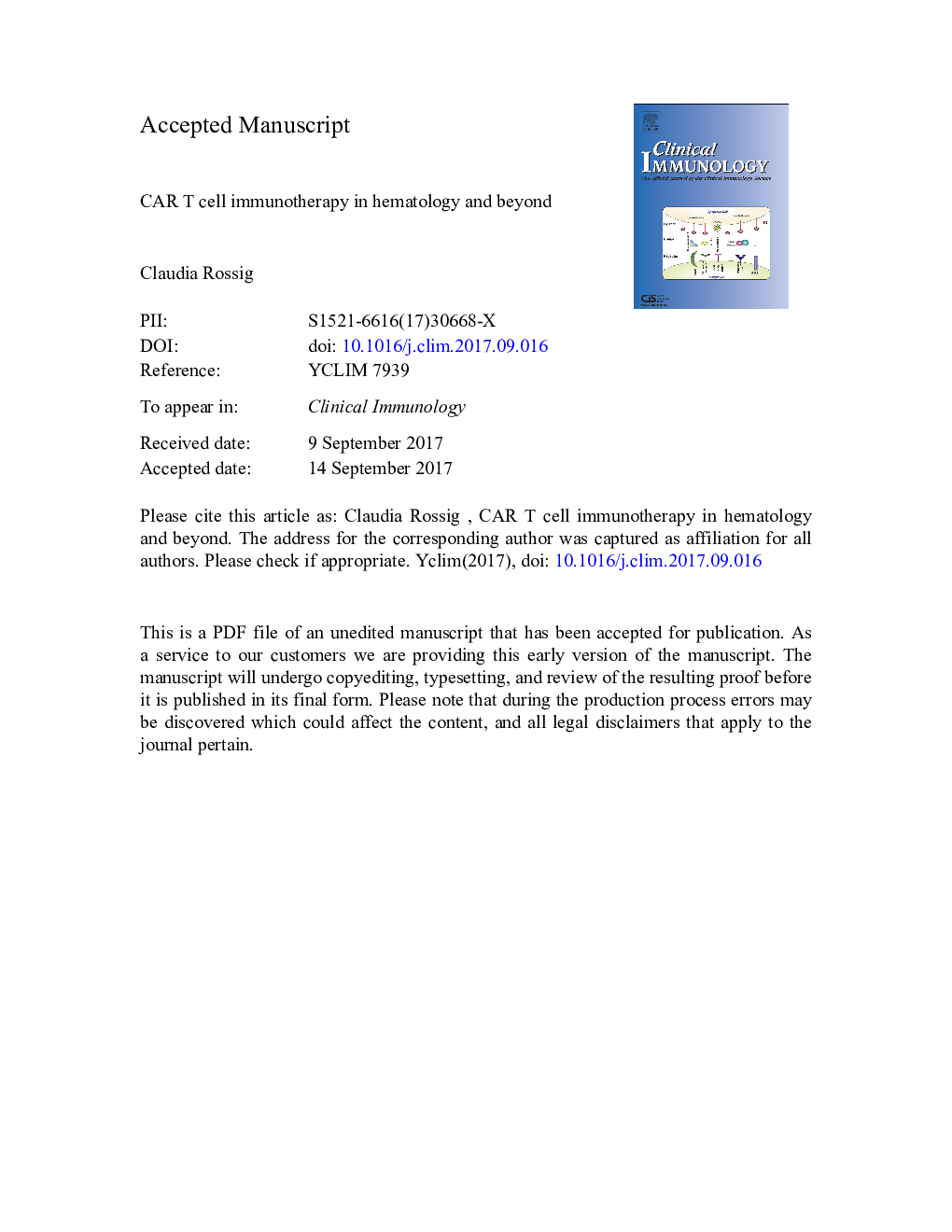| Article ID | Journal | Published Year | Pages | File Type |
|---|---|---|---|---|
| 8721439 | Clinical Immunology | 2018 | 18 Pages |
Abstract
Chimeric T cell receptors (CARs) combine extracellular antigen recognition domains and T cell activation components in single molecules. CAR gene transfer thereby allows to generate T cells with engineered specificities. The translational development of CAR-based T cell therapies is most advanced in B cell cancers where CAR-engineered T cells against the B lineage antigen CD19 have generated impressive results in early clinical trials. CARs are now also explored as tools to eliminate autoreactive B cell clones and to engineer T cells with immunosuppressive function for preventing pathological auto- or alloresponses. With ongoing intensive preclinical investigation and the advent of simplified manufacturing techniques, CAR T cells are expected to enter clinical investigation in a broader variety of hematological and solid cancers and in autoimmune diseases in the near future.
Related Topics
Life Sciences
Immunology and Microbiology
Immunology
Authors
Claudia Rossig,
